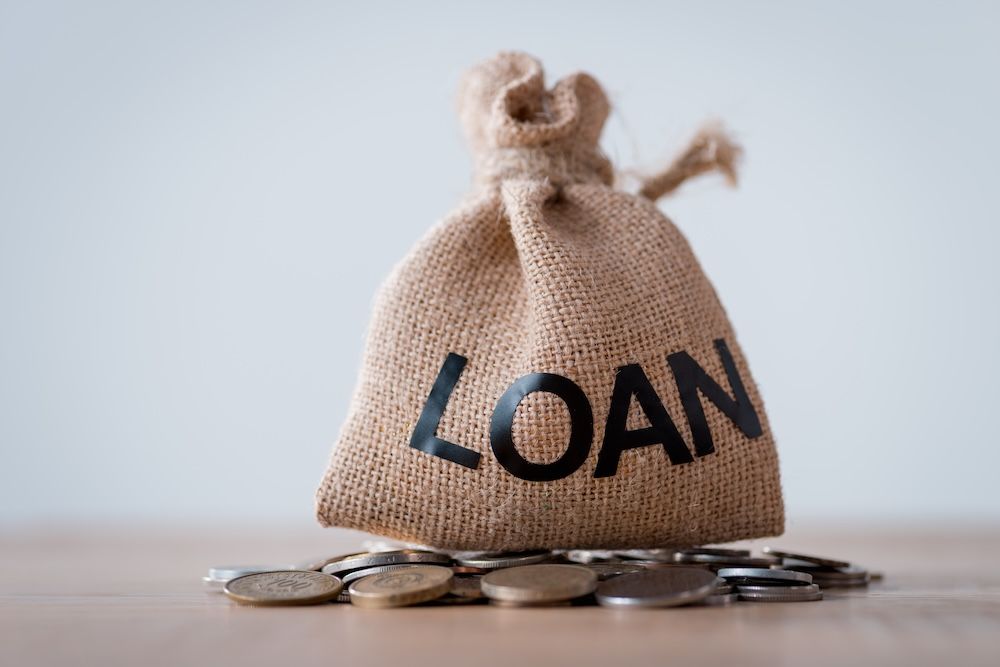Discover secure Installment Loans that fit your financial plan
Wiki Article
A Comprehensive Guide to Home Loans: Provider and Options Explained
Charting the world of home lendings can be intricate. Different options exist, each with one-of-a-kind functions and implications for prospective home owners. Understanding the distinctions between government-backed and conventional loans is necessary. Furthermore, the application procedure includes careful paperwork and pre-approval actions that lots of neglect. As debtors start on their home-buying journey, knowing how to handle these responsibilities properly can imply the difference in between economic security and hardship. What techniques can equip them on this path?Recognizing Home Loans: Kinds and Terminology
Recognizing the different kinds of home mortgage and their linked terms is important for possible property owners, as it outfits them with the understanding needed to make enlightened financial decisions. Home loans can be generally categorized right into fixed-rate and adjustable-rate home loans. Fixed-rate home mortgages keep a consistent rate of interest over the life of the lending, supplying security in regular monthly settlements. Conversely, variable-rate mortgages feature interest prices that might fluctuate after a first set duration, potentially resulting in lower first settlements but enhanced future expenses.Extra terminology is essential for clearness. Principal refers to the car loan amount obtained, while rate of interest is the cost of loaning that amount. The term of the car loan indicates its duration, commonly ranging from 15 to three decades. Comprehending these fundamental concepts allows prospective purchasers to navigate the complicated landscape of home funding, guaranteeing they pick the appropriate car loan option that straightens with their economic situation and lasting goals.
Standard Loans vs. Government-Backed Loans
A significant difference in home financing exists in between government-backed car loans and conventional loans, each accommodating different customer requirements and circumstances. Traditional loans are not guaranteed or guaranteed by the government and typically require greater credit history and deposits. They are usually interesting debtors with steady financial histories, as they might use competitive rate of interest prices and terms.In contrast, government-backed fundings, such as FHA, VA, and USDA car loans, are designed to assist certain groups of debtors, including newbie buyers and professionals. These finances usually feature reduced down repayment needs and even more versatile credit report requirements, making them accessible to a broader variety of people.
Eventually, the selection between standard and government-backed finances depends upon the debtor's economic circumstance, lasting goals, and eligibility, making it vital to very carefully review both alternatives before choosing.
The Role of Interest Rates in Home Funding
Passion rates play a vital duty in home funding, affecting customers' decisions between set and variable rate financings. The selection in between these choices can considerably affect month-to-month repayments, affecting overall price. Understanding how passion prices function is essential for anyone steering with the mortgage process.Fixed vs. Variable Prices
Buyers encounter a crucial choice when choosing between dealt with and variable rates, as this option considerably impacts the expense of financing in time. Fixed-rate mortgages use security, securing a rate of interest for the life of the loan, which can be advantageous in a rising rate of interest setting. This predictability enables house owners to budget plan much more successfully. On the other hand, variable-rate home loans, or adjustable-rate home loans (ARMs), generally start with lower initial rates that can fluctuate based upon market problems. While this may bring about reduced initial settlements, borrowers deal with the danger of raised rates in the future. Eventually, the selection in between fixed and variable rates relies on individual economic scenarios, risk tolerance, and expectations regarding future passion rate trends.Effect on Month-to-month Payments
When examining home funding choices, the impact of rates of interest on regular monthly payments is an essential aspect to ponder. Rates of interest directly affect the overall cost of borrowing, affecting just how much a borrower will certainly pay each month. A lower rate of interest lead to smaller sized regular monthly settlements, making homeownership more economical. Alternatively, higher prices can greatly boost month-to-month obligations, potentially stressing a homeowner's budget plan. In addition, the lending term plays a crucial duty; longer terms may spread repayments out however can bring about paying even more rate of interest in time - Cash Advance. Comprehending exactly how rate of interest communicate with loan amounts and terms is essential for borrowers to make educated economic choices and pick a mortgage that aligns with their lasting monetary objectivesHome Loan Brokers vs. Direct Lenders: Which Is Right for You?
When thinking about a home loan, possible customers must recognize the distinct functions and duties of home loan brokers and straight lending institutions. Each choice presents its very own advantages and negative aspects, which can significantly influence the total cost of financing. An informed option needs mindful analysis of these elements to identify the finest fit for specific requirements.Duties and Obligations Specified
Steering the intricacies of home financing calls for a clear understanding of the roles and duties of home loan brokers and straight lenders. Cash Advance. Mortgage brokers act as intermediaries, attaching borrowers with loan providers. They evaluate a borrower's economic situation, curate lending alternatives, and overview clients through the application process, often leveraging numerous lender partnerships to protect favorable terms. Alternatively, direct lending institutions, such as banks and credit unions, give fundings straight to borrowers. They handle the whole lending process, from application to funding, with a concentrate on their own products. Each option offers distinct opportunities for obtaining financing, making it necessary for debtors to review their needs and choices when making a decision between engaging a mortgage broker or working with a direct lending institutionBenefits and drawbacks Contrast
Selecting between a mortgage broker and a direct loan provider can greatly influence the home funding experience, as each choice supplies unique advantages and disadvantages. Home mortgage brokers work as intermediaries, giving accessibility to several loan providers and possibly much better prices, while streamlining the car loan process. They may charge fees and depend on compensation structures that might influence their suggestions. On the other hand, direct lenders simplify the process by providing internal loans, which can result in faster authorizations and fewer difficulties. On the other hand, they might have a minimal selection of items and less adaptability relating to rates. Ultimately, the choice hinges on individual preferences, economic situations, and the preferred degree of support throughout the home mortgage journey.Expense Effects Evaluated
While evaluating the price effects of mortgage brokers versus direct lending institutions, potential home owners need to consider different aspects that can greatly impact their general expenses. Mortgage brokers commonly bill fees for their services, which can differ substantially, influencing the total car loan price. Nonetheless, they commonly have access to a wider series of finance products and affordable rates, possibly saving debtors cash over time. On the other hand, direct loan providers may provide a much more uncomplicated procedure with potentially lower upfront costs, but their lending alternatives might be restricted. It is necessary for home owners to contrast rates of interest, costs, and terms from both loan providers and brokers, ensuring they make an enlightened choice that straightens with their economic objectives and requirements.The Mortgage Application Refine: What to Expect
The home financing application process can often really feel daunting for lots of candidates. It typically begins with collecting needed documentation, including evidence of earnings, credit rating, and personal identification. Lenders use this information to assess the candidate's monetary security and figure out car loan eligibility.Next, candidates submit an official application, which might include filling in on-line kinds or providing details personally. During this stage, lenders evaluate various elements, such as debt-to-income ratio and credit report, to pick funding terms.
As soon as pre-approved, the lender will certainly perform a thorough evaluation of the home to determine its worth aligns with the finance amount. This stage might additionally include extra background checks.
After final authorizations and problems are fulfilled, the funding is refined, resulting in the closing phase. Recognizing each step equips candidates, making the journey smoother and extra manageable as they approach homeownership.
Tips for Handling Your Mortgage Properly
Efficiently navigating the home mortgage application process is check my reference simply the beginning of an accountable economic trip. Managing a mortgage calls for interest to a number of key techniques. Debtors should develop a clear budget that accommodates month-to-month mortgage repayments, residential or commercial property tax obligations, read this and insurance. Consistently reviewing this budget plan helps protect against overspending and guarantees prompt repayments.
In addition, making added settlements when feasible can substantially reduce the car loan principal and overall rate of interest paid gradually. Consumers must also keep open lines of communication with their lending institution, particularly in times of financial difficulty - Fast Cash. This can bring about possible options such as financing alterations or re-financing alternatives
It is a good idea to keep an eye on credit history ratings routinely. An excellent credit rating can give chances for much better funding terms in the future. By following these tips, home owners can browse their finance obligations successfully, assuring long-lasting monetary wellness and stability.
Frequently Asked Inquiries
What Are Closing Expenses and Exactly How Are They Determined?
Closing costs include fees related to completing a mortgage, consisting of appraisal, title insurance, and funding source costs. These prices typically range from 2% to 5% of the finance quantity, differing based upon area and lending institution.
Can I Qualify for a Home Finance With Bad Credit Score?
Yes, people with bad credit score can qualify for a home lending, though choices may be restricted. Lenders frequently call for higher deposits or rates of interest, and checking out government-backed car loans might enhance opportunities of approval.
What Is Home mortgage Insurance coverage and When Is It Required?
Home mortgage insurance secures lenders against default and is commonly needed when a debtor makes a down payment of less than 20%. It guarantees that lenders recover losses if the borrower fails to repay the funding.Exactly How Does Refinancing Work and When Should I Consider It?
Refinancing involves replacing a present home mortgage with a new one, generally to protect a lower interest price or adjustment funding terms. Homeowners should take into consideration refinancing when rate of interest go down significantly or their financial scenario enhances.What Occurs if I Miss a Home Mortgage Settlement?
If a home loan payment is missed out on, the lending institution normally examines late fees, reports the misbehavior to credit scores bureaus, and might start foreclosure process if repayments continue to be disregarded, ultimately jeopardizing the home owner's building.Fixed-rate home loans maintain a regular interest rate over the life of the loan, providing security in monthly payments. A substantial difference in home financing exists in between government-backed loans and standard finances, each catering to different borrower demands and scenarios. In contrast, government-backed lendings, such as FHA, VA, and USDA loans, are created to help particular groups of borrowers, consisting of new property buyers and professionals. Passion prices play a vital role in home funding, influencing debtors' choices in between see this variable and fixed price lendings. Fixed-rate home mortgages provide stability, securing in an interest rate for the life of the loan, which can be advantageous in a climbing interest rate setting.
Report this wiki page